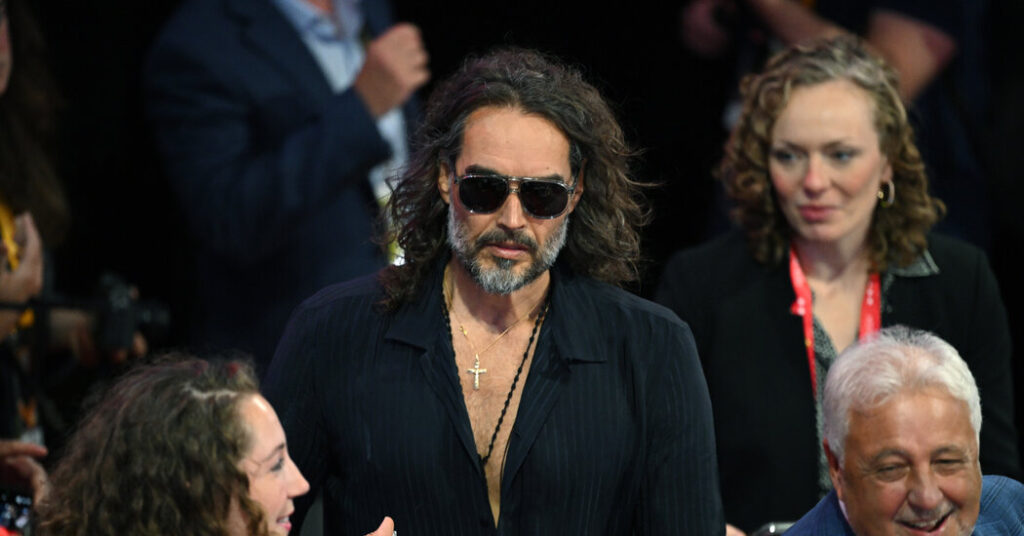The comedian and actor Russell Brand was scheduled on Friday to appear before a London court on multiple charges of sexual assault, including two counts of rape.
His appearance at Westminster Magistrates Court will be the first, largely procedural, step in what are likely to be lengthy criminal proceedings. It comes a month after British prosecutors charged Mr. Brand with one count of rape, one of oral rape, two counts of sexual assault and another of indecent assault.
Prosecutors said in a news release last month that the charges related to “reported nonrecent offenses between 1999 and 2005, involving four women.”
Mr. Brand has denied all the charges. In a video posted to his social media accounts in April, Mr. Brand said that he had “never engaged in nonconsensual activity” and that he looked forward to defending himself in court.
In Britain, the first hearing in a criminal trial is “largely administrative,” said Stuart Nolan of the Law Society, an organization representing British lawyers. On Friday, Mr. Nolan said, the judge would simply refer the case onto a higher court, called a crown court, which deals with more serious offenses.
Mr. Brand would also be asked to confirm his name, address and date of birth, but would not enter a plea, Mr. Nolan added.
A plea hearing would happen in about a month’s time, Mr. Nolan said, but the actual trial might only begin “a year from now,” because of a backlog of cases in Britain’s judicial system.
Mr. Brand became a star in Britain in the early 2000s with hit stand-up shows and appearances as a TV and radio host. Later, after the period covered by the charges, he achieved fame in the United States, too, when he starred in movies including “Forgetting Sarah Marshall” (2008) and “Get Him to the Greek (2010). He was briefly married to the pop star Katy Perry.
In recent years, Mr. Brand became better known for conspiracy-minded YouTube videos. Almost seven million users subscribe to his channel, where Mr. Brand has posted clips about politics and news events such as the war in Ukraine.
Under British law, news outlets cannot identify anyone who makes sexual assault allegations unless they choose to waive their right to anonymity. After charges have been filed, strict rules also prevent the reporting of any information that could prejudice a jury at trial.


